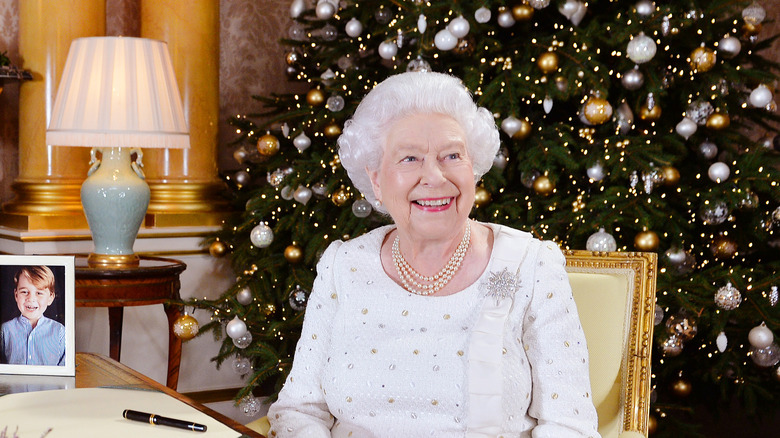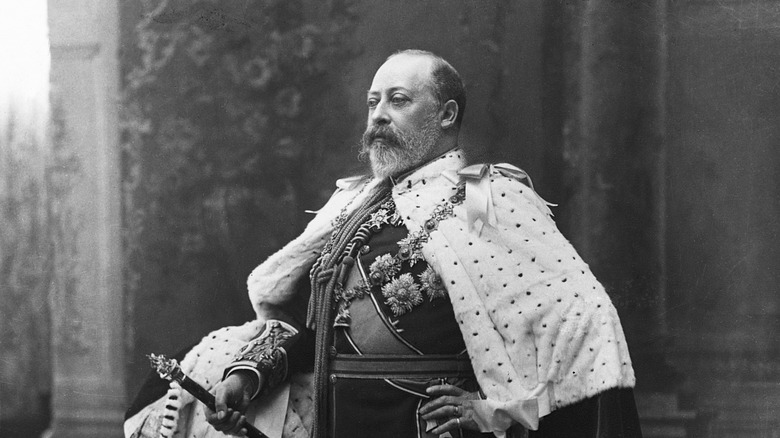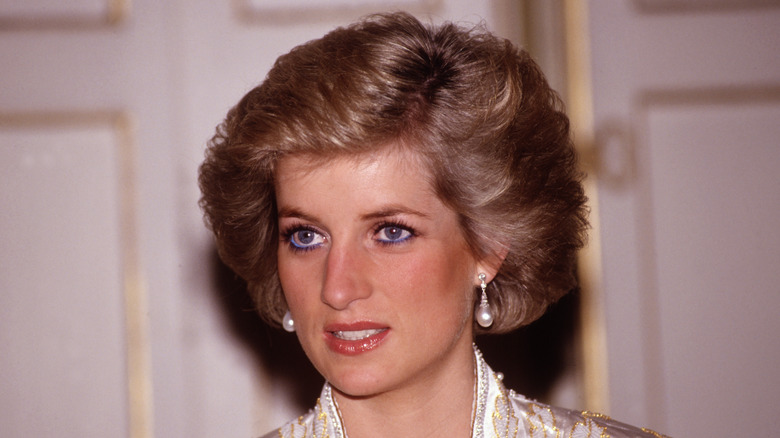The Strange Reason The Royal Family Is Weighed Before And After Christmas Dinner
The British Royal Family is more often than not discussed in terms of the various tabloid dramas that have engulfed the monarchy in recent decades. However, recent major royal events including the Platinum Jubilee, the funeral of Queen Elizabeth II, and the coronation of King Charles III have reminded many of the defining characteristic of royalty: tradition. The coronation, for example, was a lavish affair involving a ceremonial sword, scepter, and orb, and a ritual performed by the Archbishop of Canterbury; similarly, the late queen's funeral was meticulously planned and involved an array of military salutes and countless other ritual flourishes as the nation said goodbye to the beloved monarch.
But tradition is also accompanied by what is known as royal "protocol," a litany of countless unwritten rules that dictate the day-to-day running of the monarchy and the behavior expected of the royals both major and minor. Royal watchers have reported, for example, that all royals must possess a black outfit while traveling in case of a sudden death, but that black should only be worn when mourning. Elsewhere, it was said that Queen Elizabeth II operated a signaling system involving her assistants, in which the placement of her handbag on a table meant she wanted to bring an event to a close. And there is also the bizarre fact that the royals are each weighed before and after their Christmas dinner. Though it is a light-hearted historical tradition, it is nevertheless apparently mandatory.
An Edwardian tradition
As with many of the seemingly unusual rituals that make up everyday life for members of the British Royal Family, the ritual of being weighed before and after Christmas dinner goes back many generations to King Charles III's great-great-grandfather, King Edward VII.
Like many families, the royals' Christmas celebrations revolve around consuming copious amounts of food and drink. Christmas day consists of a roast turkey lunch, tea and cake in the afternoon, and another sprawling meal in the evening. According to Grazia, during Edward's reign, it became traditional for everyone who dined with the royals on Christmas day to be weighed before and after the day's feasting to ensure everyone had indulged enough that it would show on the scales.
The tradition made headlines in 2018 when it was revealed that Meghan Marckle's mother, Doria, had been invited by Queen Elizabeth II to spend Christmas with the Royal Family at their Sandringham estate. Some outlets were dismayed at the thought of the outsider being faced with a weighing ceremony on a day when she would be expected to consume to excess, though it was also reported that Doria would not be under pressure to adhere to all aspects of royal protocol on account of being American.
Princess Diana reportedly scorned the scales
Unsurprisingly, not everyone who found themselves part of the inner circle of the British royal family was pleased to find themselves having to jump through hoop after hoop of tradition and protocol. One of these, famously, was Princess Diana, whose marriage to King Charles III — then known as Charles, The Prince of Wales — and subsequent divorce were serious tabloid fodder in the U.K. and beyond, before she was tragically killed in a traffic collision in 1997.
Diana's relationship with the Royal Family was tumultuous, to say the least — as has now been widely reported, the Princess was desperately unhappy in her marriage and struggled to deal with the demands that marrying into royalty had heaped upon her. The necessity of a royal Christmas "weigh-in" gained attention once again in 2021, when the biopic "Spencer" depicted Diana's aversion to the arguably invasive practice. Critics claim that the tradition is certainly insensitive, and in Diana's case potentially damaging in light of her suffering from bulimia, which was public knowledge during her lifetime. Nevertheless, it seems that the unusual ritual persists.
If you need help with an eating disorder, or know someone who does, help is available. Visit the National Eating Disorders Association website or contact NEDA's Live Helpline at 1-800-931-2237. You can also receive 24/7 Crisis Support via text (send NEDA to 741-741).


